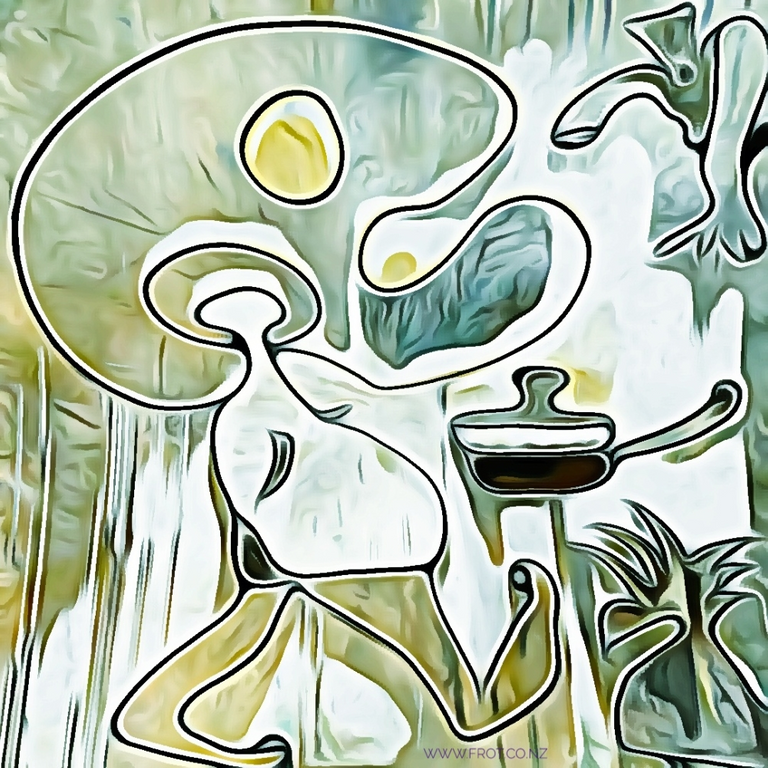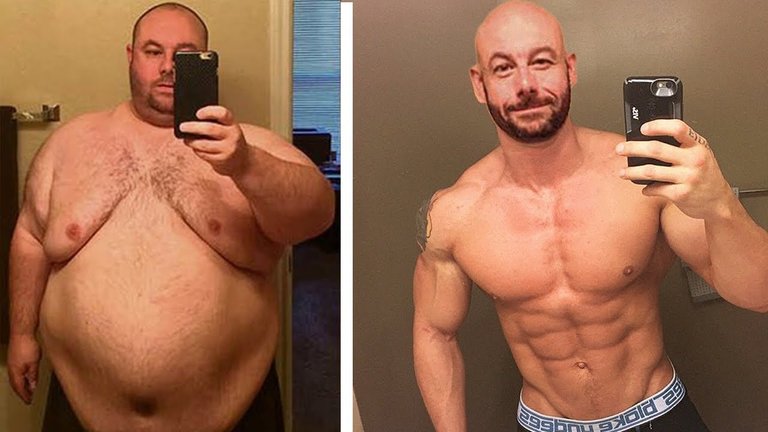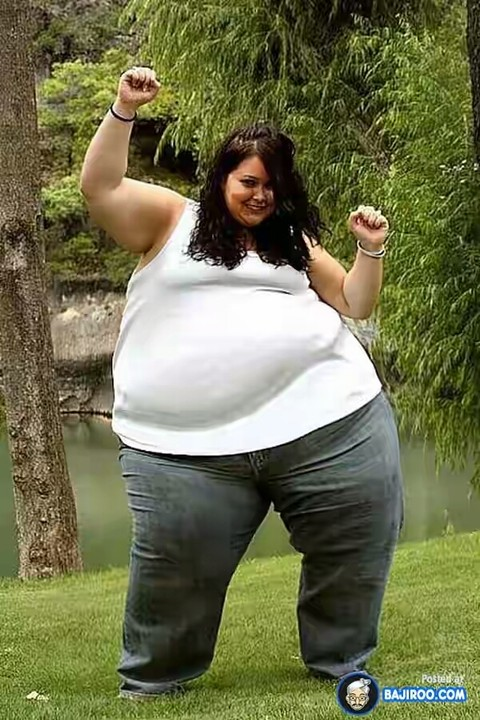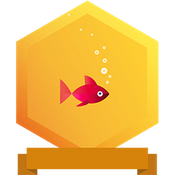One of my most important Wordpress blog posts (if I say so myself) was my intro to basic good eating - "FOOD 101" - Yesterday I was just giving it an update, and thought "this really would be good to post on VYB"
Long ago on the now half arsed Chinese/Korean platform called "Steemit" I posted a lot of this content but never put it all into one post. So here it is on a blockchain all in one!

FOOD 101 - Some Basics Of Eating Well
We all have to start somewhere, and while some people who know their stuff are probably going to think this is all a bit simplistic, my aim here is to get people who don’t know their stuff to start paying more attention!
The no references aspect is entirely deliberate, but I do have some.
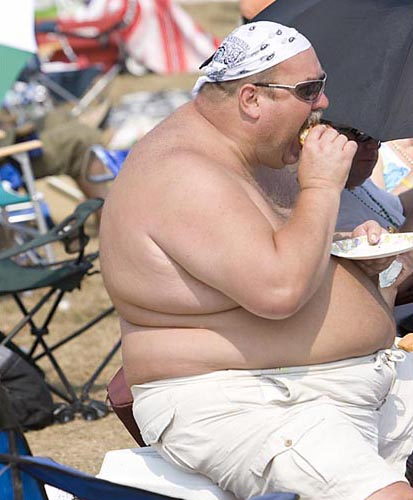
Avoid Refined Carbohydrates
This is the big one – avoid most of these and for most people, weight gain is generally not a problem. Yep, that does include bread, pasta, sugars, cereals, fruit juices and muffins. Yep that pretty much is the food everyone else lives on, and it will make you a social freak. If it’s any consolation you can eat as much meat, veg, and saturated fat as you like and it will all be just fine. So you can have bacon and eggs, and raw cream for breakfast, while you watch fat people eat bagels and orange juice!
This pic below is known as a “food pyramid” – it’s a good summary of how not to eat, all encompassed in one child friendly, grain industry sponsored pile of propaganda:
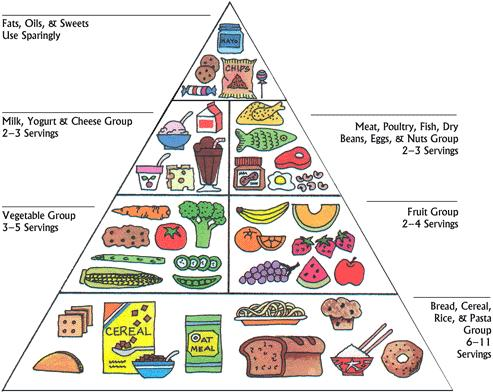
Drink Clean Water
Obtain clean water and drink it. Tap water in NZ is toxic because it contains fluoride, chlorine, aluminium (alum), and in some cases (where there are old water pipes) asbestos as well
It’s not just drinking the tap water that’s a problem – bathing and showering in it leads to fluoride and chlorine absorption too.
A good household carbon filter will take out chlorine, asbestos, and aluminium, but it will not take out fluoride. This can be done, but it requires a much more expensive filtration system (around NZ$2000-4000) to sort out your water for bathing and showering.
Reverse osmosis filters and distillers will get most of the fluoride out for drinking, but they remove the good minerals too, and this may cause other problems.
If you are unable to obtain water free from a good source, and have to buy bottled water, keep in mind that some bottled water is just tap water that’s been filtered to get rid of the chlorine taste, while some bottled spring water is good quality.
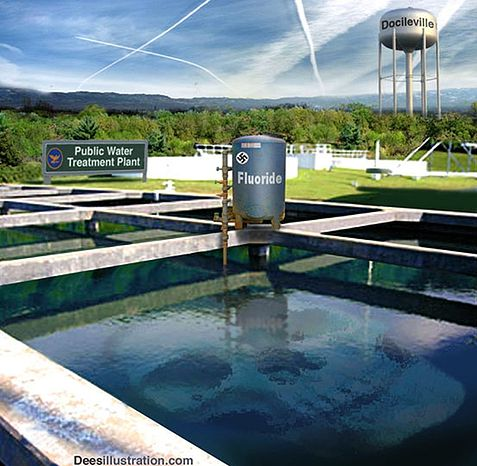
Eat Raw Dairy Products
Milk that has been pasturised is useless, all the enzymes in it that are needed for digestion and calcium absorption have been destroyed.
Full fat raw milk from A2 Jersey cows eating fresh organic grass is a health food. But only raw milk is worth drinking, commercial milk that has been pasturised or homogenised is no good at all.
In New Zealand (and some other countries/states), real raw milk can be obtained directly from some farmers (for about the same price as the Fonterra sells it’s A1 maximum allowable DDT content, low fat crud in the supermarkets). But the government does what it can to outlaw the sale of raw milk, so it is a black market product.
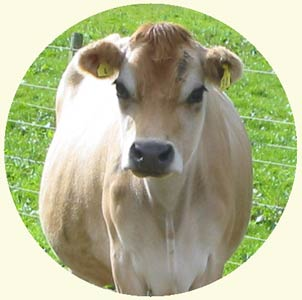
Avoid Sugar In All It’s Forms
Of all the refined carbs, it’s sugar that’s the worst one. It’s hard to avoid because almost all commercial food contains it in some form.
It’s cheap and addictive, and it has been linked to pretty much every form of illness, particularly cancer, diabetes, and obesity. On an ingredients label, generally anything ending in “ose” is a sugar too. And fructose is one of the worst forms. High fructose corn syrup is king toxic of the toxic stuff.
PowerBar – “Athletic energy food for optimum performance.”
MAIN INGREDIENT: High Fructose Corn Syrup….
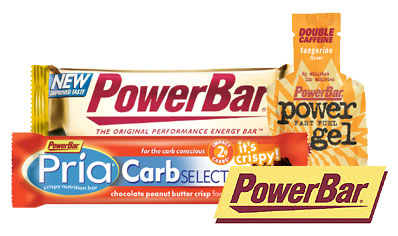
Avoid “Low Fat” Foods – Eat More Saturated Fats
Low fat foods tend to be high sugar foods, and are generally unhealthy and fattening. They are the fast way to become an obese diabetic.
At each meal, aim to consume some foods with a high content of saturated fat, or add some saturated fat, such as butter or coconut cream, to foods that are low in fat (such as fruit)
And like saturated fat, cholesterol is an essential nutrient. A low cholesterol diet raises the levels of bad cholesterol and increases the likelihood of heart attacks and high blood pressure. Basically a diet low in cholesterol causes high cholesterol. (yes, the exact opposite of what “doctors” are saying) So eat foods high in cholesterol regularly too.
You have probably heard differently on this – don’t worry, it’s just like 911, the media reports have been slightly misleading!
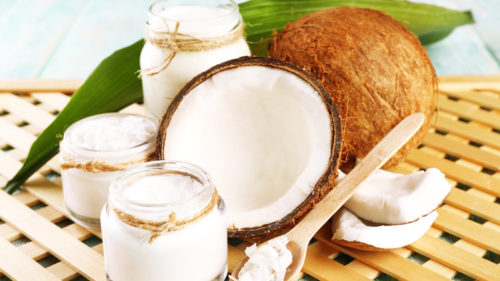
Avoid Gluten
Modern wheat is bred for it’s high gluten content. But gluten is not a good food for humans or most other animals.
Intolerance to gluten follows a bell curve, from celiac’s to people who are fine eating gluten, but the vast majority (well over 50%) of people in western nations are suffering health problems from eating gluten.
If in doubt, avoid all gluten for six days, then eat some. You may be fine, but the majority of people get symptoms such as diarrhoea, headaches, or stomach ache when testing, which shows they have a gluten intolerance to some degree.
Good replacements for wheat flour include coconut flour, ground almonds, and arrowroot flour. (You can’t just substitute though. You may need to mix flours together correctly, so consult someone experienced in gluten free cooking for help.)
All modern high gluten bread is best avoided.
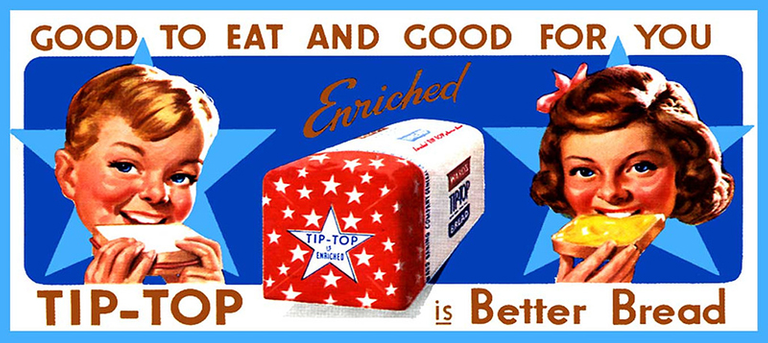
Avoid ingesting man-made chemicals
Don’t put them on your skin (deodorants), wash in them (most shampoos), or swim in them (chlorinated swimming pools), inject them (vaccinations), inhale them (perfumes), smoke them (cigarettes), cook in them (teflon), or swallow them (drugs – especially prescription ones).
But most of all, don’t eat them – flavourings, colourings, preservatives, MSG – Virtually all chemicals (and there’s about 80,000 of them) are toxic to living things. Just because they are in food doesn’t mean they are OK, – it just means the right officials were paid in full to approve them.
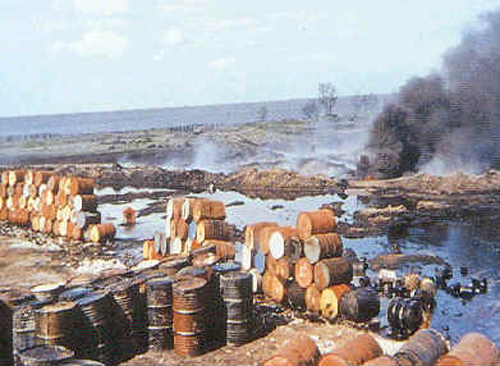
Avoid Soft Drinks (“soda”)
This one’s not rocket science, sickly fizzy products such as those sold by Coca Cola are not doing you any favours!
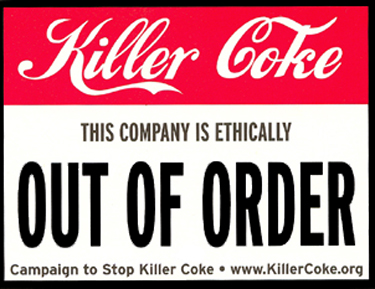
Avoid Trans Fats and Vegetable Oils
Fats are a complex subject, and no area of diet has more misinformation than this one.
Coconut oil, butter, lard, and extra virgin olive oils are generally good foods, while pretty much all other vegetable oils are rancid toxic crud. Canola oil (rapeseed) is amongst the worst.
Heated vegetable oils are about as dodgy as they get, and yes your fish and chip shop IS trying to kill you – chips fried in lard are much better for you!
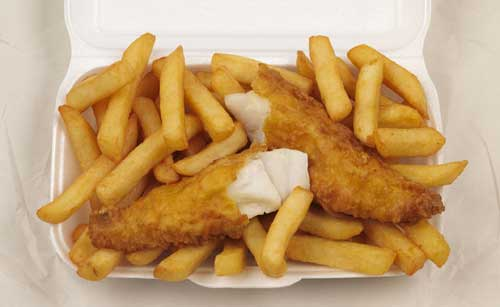
“We cook with healthy canola oil” – Mmmmm, trans fats AND a gluten batter….better wash it all down with a coke!
Don’t worry, it’s actually quite easy to cook your own fish and chips using lard, olive oil, or coconut oil, so there’s no need to go without this tasty favorite.
Avoid Fast Food – Eat Slow Food
Avoid microwaves, takeaways, instant noodles, and production line swill from commercial producers.
Eat food that’s been carefully produced and prepared by people who care what goes into it.
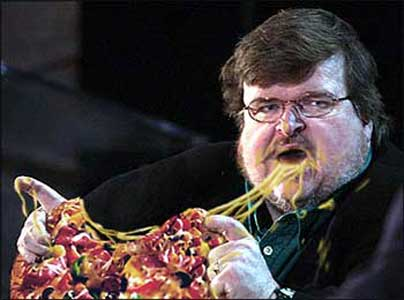
Avoid Soy
This shouldn’t be too hard really, it tastes horrible.
It’s also a dangerous and toxic substance that does so many bad things to people it’s hard to know where to start, so I won’t. Thankfully it’s not as common in New Zealand as it is in America, and it’s mainly vegetarians who seem to consume it.
Avoid it, and if you really feel the need for some toxic stuff at least eat something more enjoyable like sugar or alcohol.
The Whole Soy Story by Kaayla T. Daniel, PhD goes into this subject in depth.
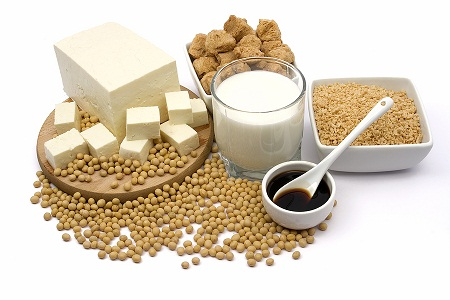
Avoid Aspartame and all artificial sweeteners
Aspartame, Nutra Sweet, Splenda, Equal, – headaches, nausea, vertigo, insomnia, numbness, blurred vision, blindness and other eye problems, memory loss, slurred speech, depression, personality changes, hyperactivity, stomach disorders, seizures, skin lesions, rashes, anxiety attacks, muscle cramping and joint pain, loss of energy, symptoms mimicking heart attacks, hearing loss and ear ringing, loss or change of taste, cancer, Parkinson’s disease, brain tumours, tremors…
This stuff is really bad, but for some reason, even today, there are people who don’t know that – like Michael J Fox

This is not one to mess with – really avoid it 100%
Eat Free Range, Grass Fed Meat
While this is normal in New Zealand, the same cannot be said for many other countries. Even in NZ it pays to check, as cheap toxic animal products are being imported from countries like China, while much of our quality meat is being exported for top prices to markets like the UK.
The quality of the meat is determined by what the animals eat and how healthy they are. Growth hormones, chemical fertilizers, antibiotics, and the consumption of food other than clean fresh grass is highly undesirable. (grain fed animals are very dodgy, let alone ones fed on waste products)
If I lived in America I wouldn’t eat meat from commercial sources, that’s for sure!
Quality meats are available from organic meat suppliers if you search for them.
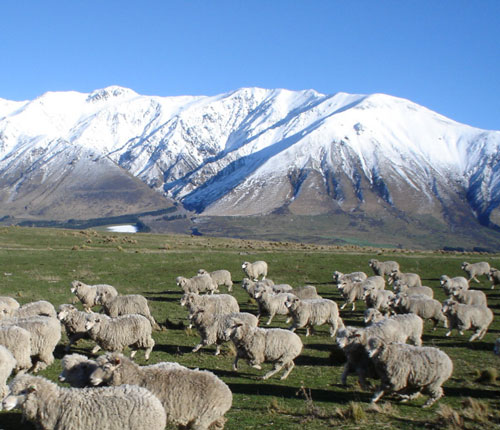
Avoid toxic and polluted imported foods from unclean sources such as China
China makes cheap TV’s and bicycles, but you don’t eat those. If you choose to buy cheap Chinese food, you should just stare at it, or sit on it, but on no account eat it.
It’s almost unbelievable that even here in NZ food is being made from “local and imported ingredients” – if you don’t know where something comes from – do not eat it.
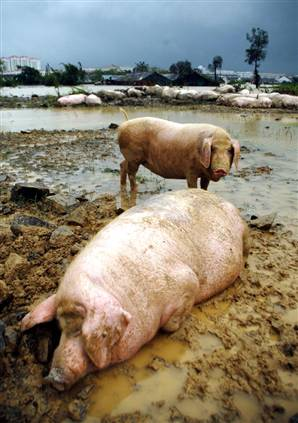
Ignore the rantings of the vegetarian movement
Vegetarians can be pretty militant (almost all the abusive emails received by DietNet are from vegetarians), and many non-vegetarians have been subtly influenced to actually believe that products like soy are in some way healthier than animal based foods.
While a lot of the commercial meat is toxic in some countries, it’s not that eating meat is inherently unhealthy, it’s just important to make sure the meat is sourced from healthy animals.
Quality meats (organic, grass fed, full fat, unprocessed), and animal products (eg. raw milk, free range eggs, raw cheese) are the real super nutrients, not lentils!
Nice work…this book is really on to it….not
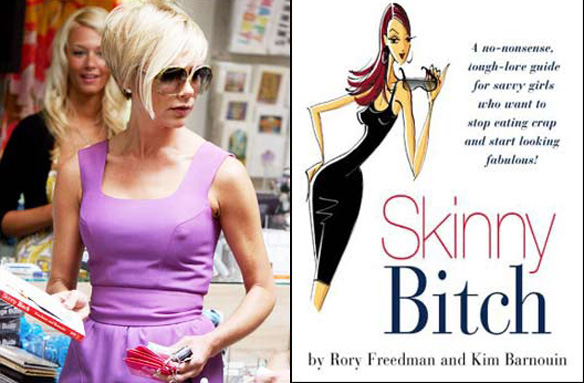
Alcohol really is a poison
Yes I am saying avoid all alcohol, it is a poison and it does you a great deal of damage. But you probably already know that and drink it anyway.
Some drinks are less harmful than others – traditionally slow brewed beers are better than fast brewed commercial beers.
There are some spirits that possibly have health benefits such as traditionally distilled Greek Ouzo (helps digestion) served with mineral water, and small amounts of good quality organic wine are a little better than supermarket swill.
Most NZ wine is toxic as it contains preservatives such as 220 (sulphur dioxide) and 200 (sorbic acid), so only drink organic preservative free wine.
Quality not quantity is the key here.
And after drinking, there are some things that can help speed recovery and minimise the damage, such as Chlorella.
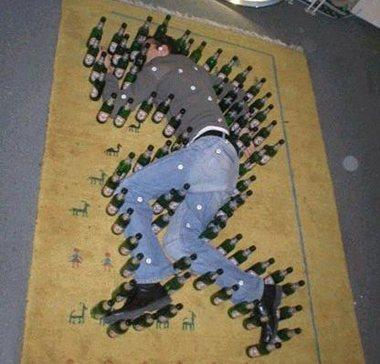
Watch out for other food related dangers
Microwaves damage your food, and there is no point obtaining quality food then nuking it.
Plastic storage containers can contaminate your food with pseudo estrogens – which along with soy contributes to “man breasts” and many other side effects
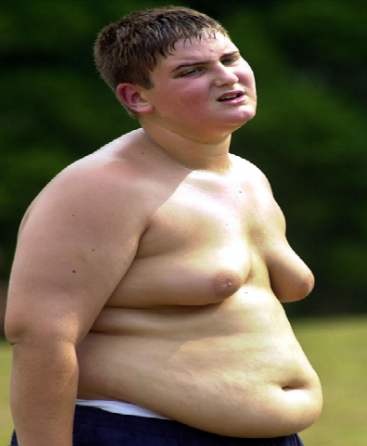
Genetic Modification creates dangerous foods (Monsanto UK actually ban GM food from their own staff cafeterias)
Amalgam fillings release mercury into your system and are very toxic – they are banned in many European countries for good reason. Chewing clean food with toxic teeth is self defeating.
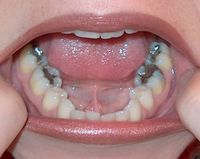
Although they are not directly food related I’ll also mention here to avoid most cosmetics, deodorants, hair dyes, vaccines, prescription drugs, x-rays and cell phones – all of which contribute to rising cancer rates.
Avoid takeaways from waste dumps like McDonalds
This is like a summary of most of the things I’ve just mentioned.
In one fast, corporate, toxic, ethical void you can pay money to eat:
Trans fats, sugar, chemicals, flavourings, colourings, artificial sweeteners, gluten, unclean and poor quality meats, pesticide residues, aspartame, GM food, suspect imported ingredients, and minced up toxic four week old chickens, all happily served to you by teenagers who are paid less than street cleaners.
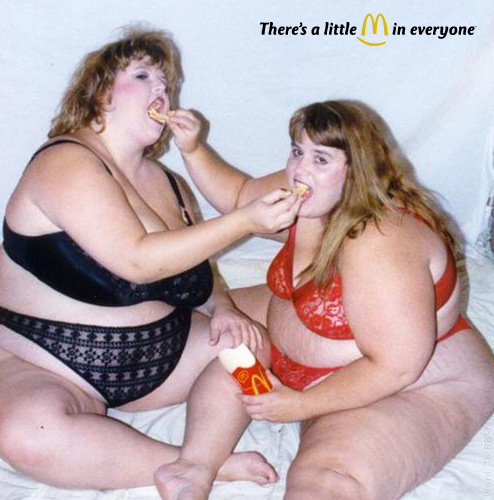
And more…
There are always more things to learn, but I think this covers most of the food basics to watch out for, fingers crossed.
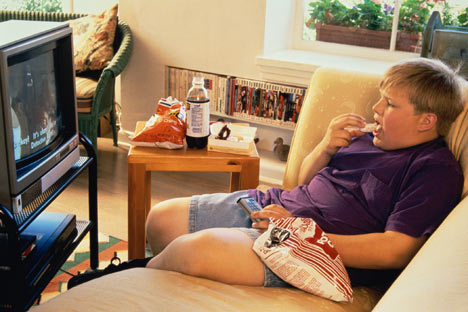
FROT ONLINE - You know you want more!
https://www.frot.co.nz
https://www.vybrainium.com/@frot
https://bastyon.com/frot
https://gab.com/frot
